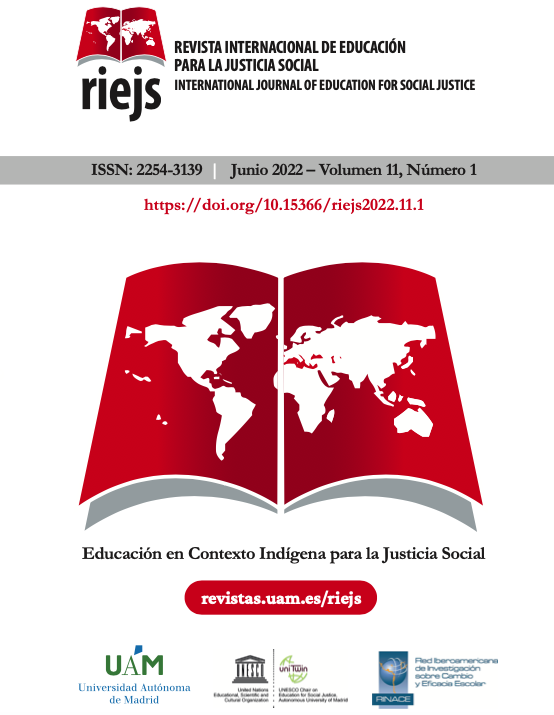The presentation of Volume 11 (01) of the International Journal of Education for Social Justice took place last Wednesday
On June 8, 2022, the latest number 11(1) of the International Journal of Education for Social Justice “Education in the indigenous context for Social Justice” was presented

F. Javier Murillo, next to Silvia Castillo, Miguel del Pino, Gerardo Muñoz, Pamela Tejeda, Diego Pinto, Cynthia Martínez and Jessica Aliaga presented the latest volume of the RIEJS. They gave an introduction to the eight articles that make up this monograph, which explain different experiences and studies regarding education in indigenous contexts and how its protagonists (teachers, indigenous scholars, students, among other people) work to make their territories and schools, spaces of social justice.
Specialists explained the main points of their research: on one hand, the progress and mistakes of intercultural education programs in Latin American, delving into socio-educational problems and seeking improvement actions; and, on the other hand, the progress in research in education for social justice with indigenous communities.
Throughout the presentation, the experts develop an introduction to what is written in the monograph. Both in the exhibition and in the volume, various topics are covered: Küpan and Tuwün as funds of knowledge to contextualize intercultural education in the Mapuche territory in Chile; the knowledge and actions of educational evaluation in the Mapuche context from the perspectives of social justice as recognition and participation; and, the relationships between educational practices and Mapuche family knowledge in childhood education.
Likewise, the indigenous-Aymara ontological understanding of the educational purposes and myth of the school was addressed; the educational evaluation in universities is proposed from the experience of students in a situation of disability, in an indigenous context; and, the issue of decolonizing the school, based on experiences of an education for social justice in native communities of the southeast of Mexico.
Furthermore, it is limited to a theoretical review regarding the teaching of the years of history known as “conflictive”, where people in these periods of time experienced various social, political, ethnic problems, among others; and, it is part of the discussion between the academy, research and indigenous people, pointing towards the necessary dialogue of knowledge for a joint and non-extractivist work.
Press play to see the full presentation:
